Are you composting coffee grounds? Or using them in the vegetable garden? Used coffee grounds are a great way to improve your garden soil. And good soil = better harvest! Toss the remains of your morning cup of Joe in the compost!
Originally published May 2011; this post has been updated.
There’s often debate about the acidity of coffee grounds and how that might impact your garden soil, but Science Daily says:
Contrary to popular belief, coffee grounds are not acidic. After brewing, the grounds are close to pH neutral, between 6.5 and 6.8.
According to the article, used grounds are a high nitrogen material and can be added to the compost pile in lieu of manure. In fact, one interviewee claims that he had better success adding spent coffee grounds to his compost than with manure.
As long as you’re maintaining a fairly equal balance of carbon (straw, leaves, shredded paper) and nitrogen (coffee grounds, lawn clippings, kitchen waste) your compost pile will just keep on doing it’s thing. The Science Daily folks even say it’s okay to put used coffee grounds directly around plants, so long as you top the grounds with a layer of leaves or straw. It’s kind of like composting in place.
Grow Some Greens!
Ready to grow fresh greens, no matter WHERE you live? Sign up for my
FREE quick-start guide and start growing some of your own food!
Composting Coffee Grounds
I’ve always added my coffee grounds to the compost pile. In fact, one of my best garden beds is one that I topped off with gallons and gallons of this underutilized resource when my son was working at a local coffee shop. I just dumped the bucket of coffee grounds on top of the soil and let them sit for a month or so before planting out the garden bed, and it’s thriving.
Get in touch with your favorite coffee shop and ask if they’ll save their used coffee grounds for you. Or swing by Starbucks — they often have their used grounds all packaged up and ready for the taking.
When adding coffee grounds to your compost, you can toss your paper filter in, too. Unbleached coffee filters are a good choice. Spent coffee grounds are also a great candidate for sheet mulching.
Considered a green compost material (nitrogen), when using coffee grounds they should be balanced with brown materials (carbon) in your compost bin.
1. Worms Love Them
If you’ve made a worm composter (go here for instructions), you can add your daily dregs to the bucket and the worms will quickly turn them into rich castings (aka, worm poop).
The worms love the grounds — or at least they seem to! — and allowing the worms to process them transforms them into an entirely new product while giving the worms something to nosh.
2. Coffee Grounds in the Vegetable Garden
In addition to composting coffee grounds, I’ve often tossed used coffee grounds in the vegetable garden around the plants. Sunset Magazine commissioned a study of Starbucks coffee grounds and found that not only are they a good nitrogen addition to compost,
use of the coffee grounds at the specified incorporation rates (rototilled into a 6- to 8-inch depth) will substantially improve availabilities of phosphorus, potassium, magnesium and copper and will probably negate the need for chemical sources of these plant essential elements.
3. Improved Soil Structure
That Sunset study also concluded that adding uncomposted coffee grounds directly to the soil can also improve the structure of soil. (Maybe that’s why my coffee ground garden bed is so happy?)
4. Why Compost Coffee Grounds?
An Oregon State University study found that a compost pile made up of 25% coffee grounds, the piles maintained a temperature of 135-155 degrees Fahrenheit for at least two weeks. This temperature during the composting process is sufficient to kill weed seeds and pathogens that might be lingering in your compost pile. Another good reason to use coffee grounds in the vegetable garden!
5. Keep Organic Matter Out of the Landfill
Organic matter added to the landfill decomposes and produces methane, which is even more damaging to our environment than carbon dioxide. Diverting used or composted coffee grounds to the garden reduces the amount of space used in the landfill and builds soil.

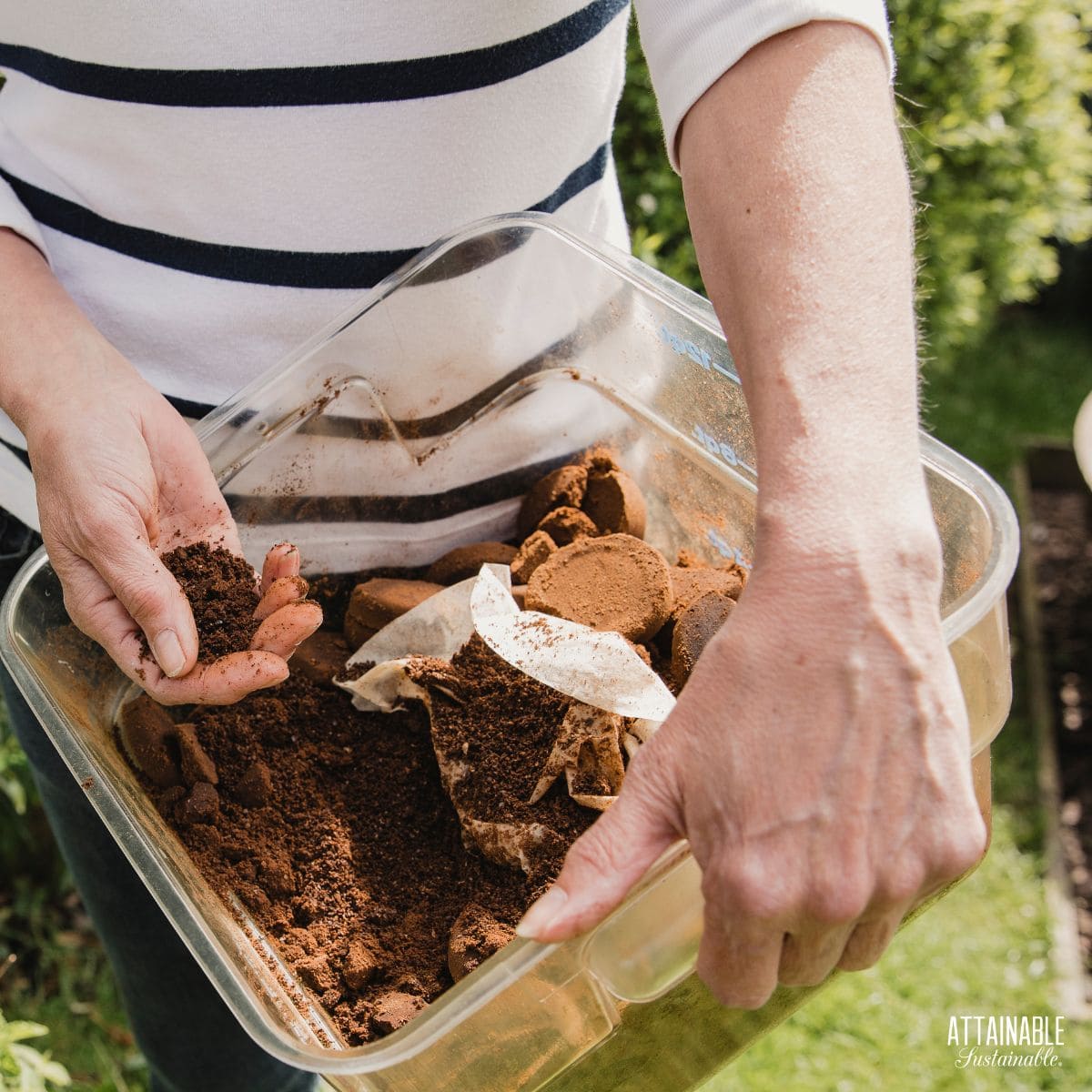
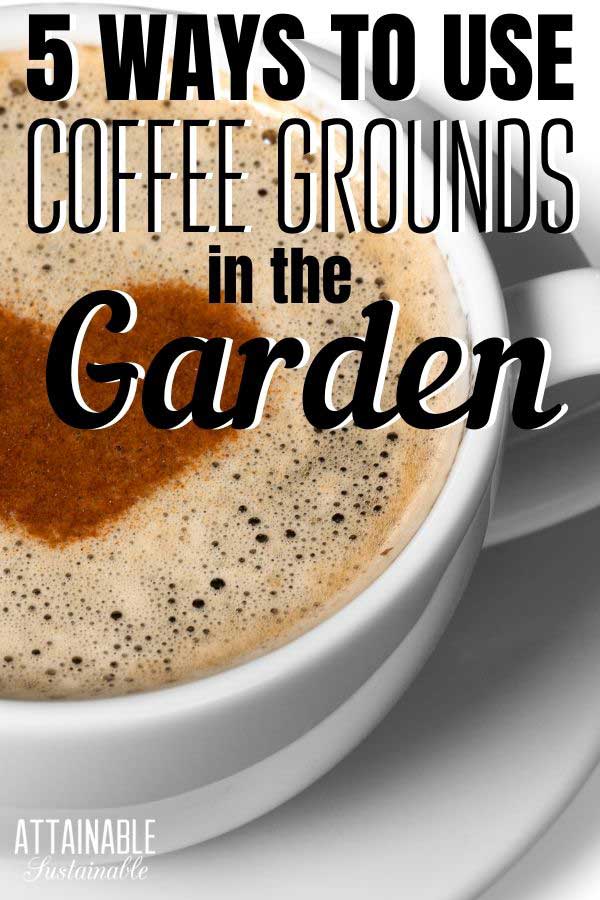
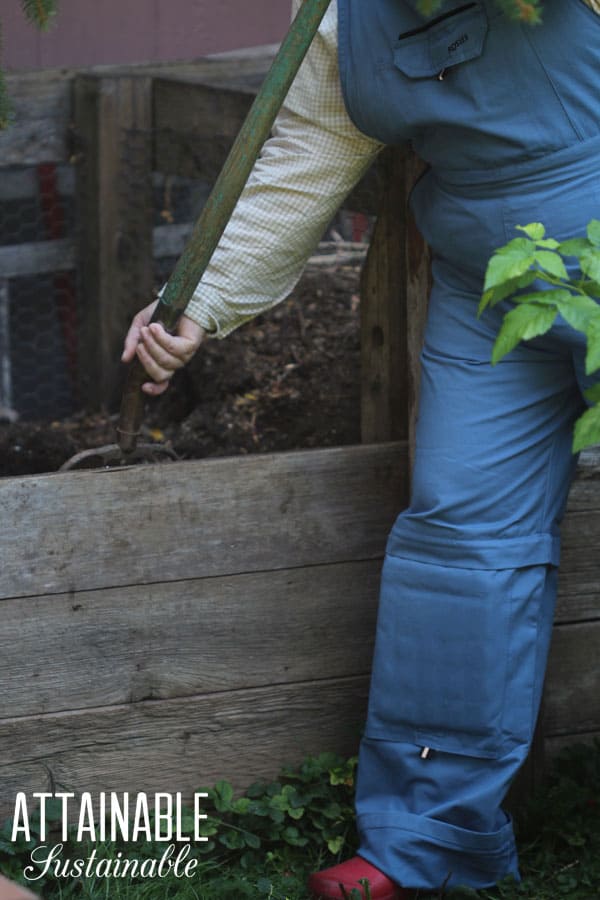

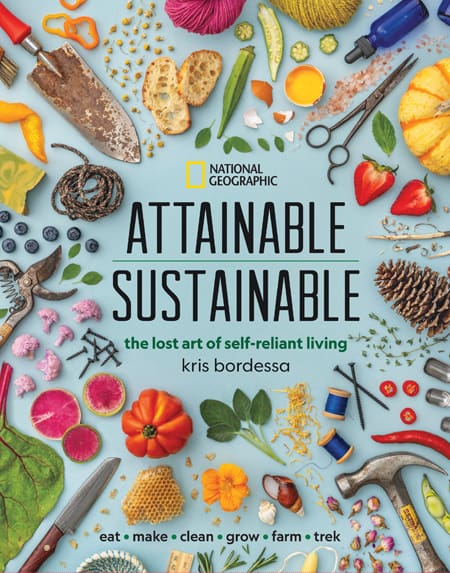
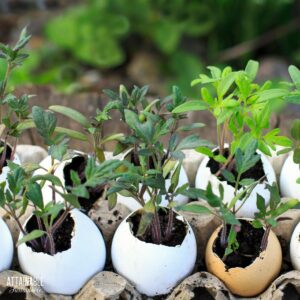
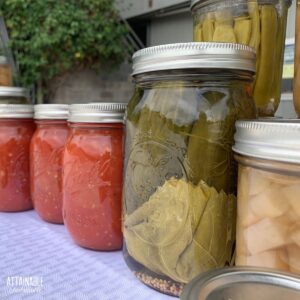
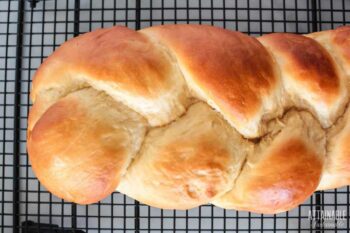
I fractured my hip & have been on the mend for quite a time now. lol I never considered a garden before but THIS IS FUN! A garden is LIFE!! The first thing I do in the morning is go there & see that living area!! WHAT FUN!!
What ratios of soil and coffee grounds for gardening
I use the coffee grounds as an additive, kind of like compost. But if you had access to a LOT, I’d probably experiment with a gallon of coffee grounds mixed with 5 gallons of soil.
I have a hard time getting enough carbon material into my compost pile. Since I live here in Hawaii, I don’t exactly have fall leaves to add in. I also don’t have straw. I get the newspapers in my mailbox (you know the little ones you never signed up for, but that show up anyway), and I sometimes remember to shred those and add them. Any suggestions on getting more carbon into the pile? Nitrogen is easy with kitchen scraps, yard waste, etc.
I have a friend that gets all of the coffee grounds from the local hospital’s cafeteria for her garden. They are free and her garden has thrived for years!
Kris, as a small girl growing up in the city of Denver, we had a huge yard with lots of grass. We had six kids and not a lot of money either – and one way we made a little spending money each was to “pick” nightcrawlers for the local bait shop! Our mom “fed” our lawn with the coffee grounds from her pots of coffee and both our grass and the size of the worms both prospered…and we continued to make our “penny per” for years and years! I have just planted my garden here in California and plan to use my grounds to nourish it!
My grandfather used coffee grounds to feed his worms when I was a child. They are very useful for that and composting.
My grandfather did, too. His worms were for fishing though – the composting was just what was required to make good bait!
I’ve also heard they are good for deterring slugs. I think that’s in the “apply directly around plants” category.
Yes, I’ve heard that. And I just heard yesterday that they work for deterring/killing the coqui frogs that are a pest here.
thanks for this information- I’ve been adding the coffee grinds to my flower bed and I must say I have seen great results. I get a full bag of grinds from our local Starbucks- they put out the grounds as a free giveaway for anyone who wants it- I seem to be one of the only people who grab it up each time.
I try to remember to ask Starbucks for their grinds. The last time I did, they were shocked – it seems nobody asks for them! A shame.
Casey, me too. I find that my worms love the grounds as well.
I’d never heard of any problems with coffee grounds in compost – good thing it was only a rumor, since I have a daily coffee habit and lots of grounds to get rid of!
Hey, I got my very own post here! Thanks for the great info, Kris. Will also pass the word along to my hubby, who does the bulk of the composting around here.
Let us know how it goes, Jane!
I used to hit up the coffee shop outside of Dave’s lab in Raleigh, NC (near NC State Univ.) for their leftover grounds. I had the most spectacular compost pile, and the most spectacular garden in NC — I’m sure due to the fantastic compost!
One of the non-perks of a military life: moving every 2-3 years and saying goodbye to my compost pile and garden. I’m back in compost “infancy” stage here on the FL Panhandle, and it’s been a struggle with very little “brown” material to speak of. Very few leaves fall from trees here.
But at least I know I’m not throwing those items in my landfill-bound garbage can, even if it takes forever before I can use it for my gardening.
I does take awhile to get a good pile cooking, doesn’t it?
I just finished an article on soil preparation. My expert loves coffee grounds for nitrogen.
Susan, that’s good to hear! I love ’em, too.